As Marisa Wikramanayake said in last year’s wrap up, let’s start with the numbers. In 2016, there were 23 reviews for 18 books by 18 authors. This is a little down on last year’s total of 26 reviews, but reflects a continuing trend to spreading our love across several poets. The books were reviewed by 14 different reviewers, with Jonathan Shaw (Me Fail? I Fly!) and Debbie Robson being our top reviewers, posting four each, closely followed by Jessica White with three reviews. A big thanks to you all, and particularly to Jonathan who has consistently been one of our top poetry reviewers.
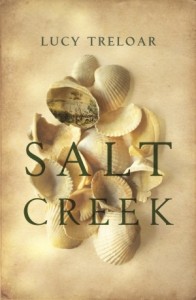 Interestingly, Lucy Treloar’s Salt Creek was the most popular book classified as “poetry” for the second year in a row, with five reviews posted, one more than last year. It is, in fact, an historical novel, but because some reviewers flagged it as “poetry” it also appears in the poetry data-set, which just goes to show that we are a broad church here at the AWW Challenge.
Interestingly, Lucy Treloar’s Salt Creek was the most popular book classified as “poetry” for the second year in a row, with five reviews posted, one more than last year. It is, in fact, an historical novel, but because some reviewers flagged it as “poetry” it also appears in the poetry data-set, which just goes to show that we are a broad church here at the AWW Challenge.
Another historical fiction novel was reviewed this year, Ruby Moonlight by indigenous author Ali Cobby Eckermann. It’s a verse novel, so an obvious fit for this category. It won the poetry prize and the book of the year in the 2013 New South Wales Premier’s Literary Awards. And I have to admit that I was its reviewer. I found it a gracious book about black-white relations in 1880s remote South Australia, and concluded my review with this summation:
Ruby Moonlight is a special read that adds another perspective and voice to colonial contact narratives, a voice that pays respect to indigenous law and traditions, addresses the politics of contact, but also recognises our personal and universal need for love and companionship. It’s a warm and generous book, but it doesn’t pull punches either. A good read.
Apologies for the self-promotion, but it’s a book that I would love to see read more widely, so really I’m promoting Ali Cobby Eckermann!
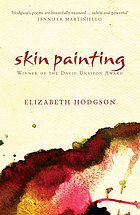 Another work by an indigenous author reviewed for the challenge was Skin painting by Wiradjuri woman, Elizabeth Hodgson. It was reviewed by Jennifer Cameron-Smith who wrote:
Another work by an indigenous author reviewed for the challenge was Skin painting by Wiradjuri woman, Elizabeth Hodgson. It was reviewed by Jennifer Cameron-Smith who wrote:
This collection of poetry is a memoir, providing insight into aspects of Ms Hodgson’s experiences of life. There are poems about her early experiences, about art, about loneliness and about sexuality.
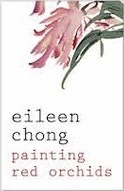 Now, though, let’s return to the numbers game. Only one other book, besides Salt Creek, was reviewed more than once, and that was Eileen Chong’s Painting red orchids, which was shortlisted for the Victorian Premier’s Literary Awards. This is the more traditional form you’d expect in this wrap-up, that is, it’s a collection of poetry. Our two reviewers were Jonathan Shaw (of course) and Jessica White who discovered the book via Jonathan, so let’s start with him! Jonathan starts his post by admitting to being an “increasingly unabashed” Chong fan. He goes on to explain that the poems, as in her previous collections, draw on her childhood in Singapore, the China of her forebears, and her present home in Australia. Overall, he says the poems are written with
Now, though, let’s return to the numbers game. Only one other book, besides Salt Creek, was reviewed more than once, and that was Eileen Chong’s Painting red orchids, which was shortlisted for the Victorian Premier’s Literary Awards. This is the more traditional form you’d expect in this wrap-up, that is, it’s a collection of poetry. Our two reviewers were Jonathan Shaw (of course) and Jessica White who discovered the book via Jonathan, so let’s start with him! Jonathan starts his post by admitting to being an “increasingly unabashed” Chong fan. He goes on to explain that the poems, as in her previous collections, draw on her childhood in Singapore, the China of her forebears, and her present home in Australia. Overall, he says the poems are written with
generosity and lucidity, and an occasional revelatory jolt. The restraint of classic Chinese poetry is never far away, and a number of poems are explicitly dedicated to great poets of the past.
Jessica White thanks Jonathan for the heads-up, and says that, because of her interest in botanical writing, she was particularly drawn to Chong’s plant-focused poems. But, she says, there are also poems that circle the domestic, and she likes that too. She concludes:
What I love about these poems is their simplicity. They’re so pared back that they are like plinths, holding up their images. Each of her books, too, are beautiful, and I like taking them out, looking at them and reading them.
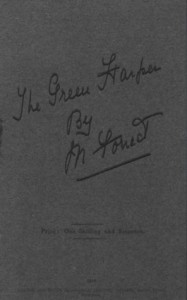 And now for something completely different, a classic! We don’t see a lot of classics in this category, but the widely-read Debbie Robson obliged with her review of the 1915 collection of poetry and prose for young children, The green harper by Mabel Forrest. She starts by mentioning her fascination with the interest in fairies in the early twentieth century. This book, as you’ll have guessed, features some of these fairies. She describes the book as being “the work of a very imaginative and gifted writer” and says her favourite poem is “Cloud Witches”, but, she continues,
And now for something completely different, a classic! We don’t see a lot of classics in this category, but the widely-read Debbie Robson obliged with her review of the 1915 collection of poetry and prose for young children, The green harper by Mabel Forrest. She starts by mentioning her fascination with the interest in fairies in the early twentieth century. This book, as you’ll have guessed, features some of these fairies. She describes the book as being “the work of a very imaginative and gifted writer” and says her favourite poem is “Cloud Witches”, but, she continues,
… what is even more interesting in this collection is her various swipes at the government of the time and the White Australia Policy. In the short story The Little Black Man (he’s some sort of leprechaun) he says:
“I don’t like all this talk about a White Australia,” he said.
The pink waterlily opened her petals, and out came a fairy face—all dimples and rose.
“ Never listen to gossip,” she said, and then the leaves closed over her again.
The kingfisher put his beak on one side, and considered.“ There are points about being a coloured bird after all,” it said. “ I suppose only the crows will suffer—the magpies have enough white to save their reputation—even in a Labour community.” Delightful!
Fascinating, eh?
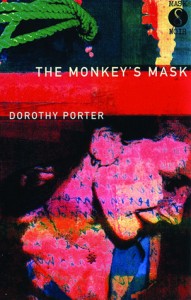 It would be a surprising year if we didn’t have at least one review of a book by Dorothy Porter, and fortunately Kelly (Orange Pekoe Reviews) obliged with her review of The monkey’s mask (another classic). Kelly encourages us not to be put off by a novel in poems, and writes that:
It would be a surprising year if we didn’t have at least one review of a book by Dorothy Porter, and fortunately Kelly (Orange Pekoe Reviews) obliged with her review of The monkey’s mask (another classic). Kelly encourages us not to be put off by a novel in poems, and writes that:
Much to my surprise I really enjoyed the contemporary world of poets and poetry: cut throat and full of deception and lies. I feared this novel would be rather pretentious but the author paints a rather cynical portrait of the world (exactly who gets published? no surprise!) which I enjoyed and appreciated.
These are just a few of the poetry works reviewed by our loyal and intrepid reviewers this year. I wish I could mention them all but that would keep us all here for longer than we probably have time. You can always find reviews of poetry works by Aussie women by typing “poetry” into the Keyword box on our Books Reviewed Search page. You never know what treasures you might find.
Meanwhile, a big thanks to all of you who read poetry, reviewed it for the challenge and/or commented on the posts our reviewers wrote. Too often poetry is the poor cousin in terms of visibility. But, as I hope this wrap-up has shown, it has so much to offer. We look forward to seeing many more reviews posted to the challenge 2017. Can you take up the challenge?
About Whispering Gums
I read, review and blog about (mostly) literary fiction. My love of Aussie literature started in childhood with Banjo Paterson’s ballads and my name comes from my school song (from a work of verse, in other words). I do love a bit of poetry – love that our challenge helps keep me up to date.





